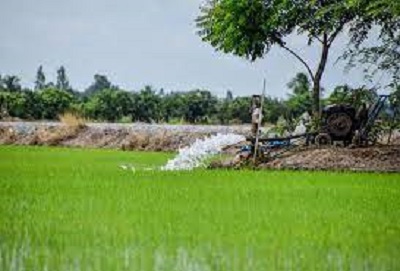

The study of agriculture is attracting students at Jana Medieval Jan Sahayogi Technical and Vocational Secondary School of Phalebash-4 in Parbat district.
The School accredited by the Ministry of Education, Science and Technology and established in 2017 BS had started offering education in agriculture study since 2070 BS.
Students from Grade 9 to 12 can choose the subject and engage in farming while running the study. The products generated from students‘ practical assignments are sent to the local market and students are provided 75 per cent of the profit made from the sales.
Sprawling across 20 ropani of land, the School offers various tools to seedlings to the students of agriculture, said teacher Ajay Gyawali, adding that 25 percent of profit made from the sales of agriculture products were kept by the School and invested in the next academic session.
Students often spend their time in the field more than in the classroom. They share the information and knowledge to their parents who are often involved in traditional subsistence farming.
Keshav Tiwari, one of the proud parents gushed, “We did not make profit from the sales of locally grown vegetables before. Now the subsistence-based farming is expanded to commercial with our children learning and teaching how to do farming in a modern way.”
Ranjita Bhujel, a 10th Grader, shared that agriculture was her interest since her childhood. She opted for the agriculture study assuming that she did not have to stay idle and unemployed after studying vocational subjects. “I used to assist my parents in farming since childhood. I am happy that I could study it for free in my own hometown instead of studying in towns paying hefty fees.”
Similarly, another student Pradeep Bhusal explained that he chose to study agriculture as there was a broad scope of employment in this field and he could consider commercial farming soon. “Instead of being ‘educated but unemployed’ by studying other subjects, I chose agriculture to work in my own hometown independently,” he shared.
The school which had hard time convincing the parents to send their children for agriculture study in its initial years now effortlessly lures students, according to Principal Ram Prasad Rijal.
Mushroom tunnel, fishery and plastic pond (for rainwater harvesting) among others are built within the School premises. There are hostels for the students coming from far-flung areas.
There are nine thematic teachers in the School that mostly has students from Parbat and Baglung districts. “To our knowledge, none of the 200 graduates from our school so far are left unemployed,” informed teacher Kedar Sapkota proudly.